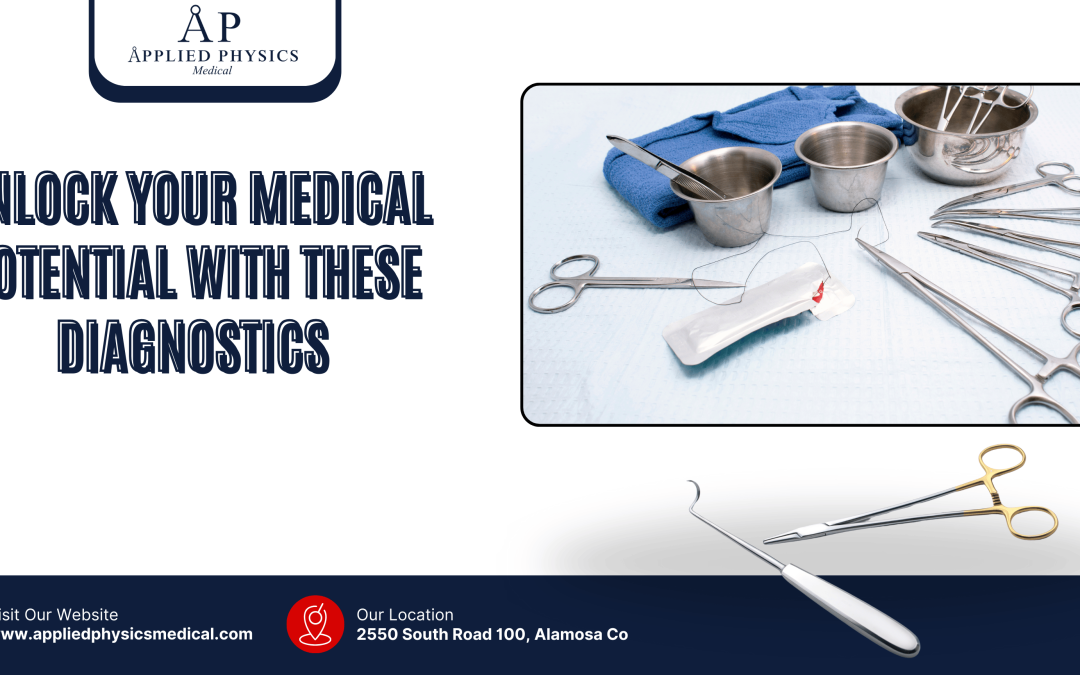Introduction
In the realm of healthcare, diagnostics serve as the cornerstone for effective treatment and disease management. The ability to accurately identify a condition not only informs the course of treatment but also empowers patients to take an active role in their health. With advancements in medical technology, the landscape of diagnostics is rapidly evolving, offering new tools and methodologies that enhance our understanding of various diseases.
By unlocking the potential of these diagnostic tools, both healthcare providers and patients can work together to achieve better health outcomes. The integration of diagnostics into everyday healthcare practices has transformed the way we approach medical conditions. From routine blood tests to advanced imaging techniques, these tools provide critical insights that guide clinical decisions.
As we delve deeper into the world of diagnostics, it becomes evident that they are not merely a means to an end; they are essential for fostering a proactive approach to health management. By understanding and utilizing these diagnostic capabilities, individuals can take significant strides toward optimizing their well-being.
Key Takeaways
- Medical diagnostics play a crucial role in preventive healthcare by detecting diseases at an early stage.
- Cutting-edge diagnostic technologies enable early disease detection, leading to better treatment outcomes.
- Personalized medicine uses diagnostic insights to tailor treatments for individual patients.
- Genetic testing has the potential to revolutionize healthcare by providing personalized insights into an individual’s genetic makeup.
- Advancements and innovations in medical diagnostics are empowering patients with knowledge about their health.
Understanding the Power of Medical Diagnostics
The Power of Diagnostics
These tests can range from simple laboratory analyses, such as blood glucose levels, to complex imaging studies like MRI scans. The power of diagnostics lies in their ability to provide objective data that can lead to timely interventions, ultimately improving patient outcomes.
Early Detection and Intervention
For instance, early detection of conditions such as diabetes or hypertension can significantly reduce the risk of complications and enhance quality of life. Moreover, the interpretation of diagnostic results is crucial in shaping treatment plans. Healthcare professionals rely on these insights to make informed decisions about patient care.
Guiding Healthcare Interventions
For example, a biopsy may reveal the presence of cancerous cells, prompting immediate action to initiate treatment. In this way, diagnostics not only inform but also guide the trajectory of healthcare interventions, underscoring their vital role in modern medicine.
The Role of Diagnostic Tests in Preventive Healthcare
Preventive healthcare emphasizes the importance of early detection and intervention to avert serious health issues before they arise. Diagnostic tests play a pivotal role in this paradigm by identifying risk factors and asymptomatic conditions that could lead to more severe health problems if left unchecked. For instance, routine screenings for cholesterol levels and blood pressure can help identify individuals at risk for cardiovascular diseases, allowing for lifestyle modifications or medical interventions to be implemented early on.
Additionally, preventive diagnostic tests such as mammograms and colonoscopies have been shown to significantly reduce mortality rates associated with breast and colorectal cancers, respectively. By encouraging regular screenings and utilizing diagnostic tests effectively, healthcare systems can shift from a reactive approach to a proactive one, ultimately leading to healthier populations and reduced healthcare costs over time.
Cutting-edge diagnostic Technologies for Early Disease Detection
| Diagnostic Technology | Early Disease Detection |
|---|---|
| Genomic Sequencing | Identifying genetic mutations associated with diseases |
| Biomarker Analysis | Detecting specific molecules indicating disease presence |
| AI-based Imaging | Identifying abnormalities in medical images for early diagnosis |
| Microfluidic Devices | Enabling rapid and sensitive detection of disease biomarkers |
The field of medical diagnostics is witnessing remarkable advancements driven by technology. Innovations such as artificial intelligence (AI) and machine learning are revolutionizing how diagnostic tests are developed and interpreted. For example, AI algorithms can analyze medical images with remarkable accuracy, assisting radiologists in detecting abnormalities that may be missed by the human eye.
This not only enhances the speed of diagnosis but also improves the precision of identifying conditions at their earliest stages. Moreover, point-of-care testing devices are becoming increasingly sophisticated, allowing for rapid diagnostics in various settings, including emergency rooms and outpatient clinics. These portable devices enable healthcare providers to obtain immediate results for conditions such as strep throat or influenza, facilitating timely treatment decisions.
As these technologies continue to evolve, they hold the promise of making early disease detection more accessible and efficient than ever before.
Personalized Medicine: Tailoring Treatments with Diagnostic Insights
Personalized medicine represents a paradigm shift in healthcare, focusing on tailoring treatments based on individual patient characteristics rather than adopting a one-size-fits-all approach. Diagnostic insights play a crucial role in this process by providing detailed information about a patient’s genetic makeup, lifestyle factors, and specific disease characteristics. For instance, genetic testing can identify mutations that influence how a patient metabolizes certain medications, allowing healthcare providers to prescribe treatments that are more effective and have fewer side effects.
This tailored approach not only enhances treatment efficacy but also minimizes the risk of adverse reactions. In oncology, for example, targeted therapies are designed based on the genetic profile of a tumor, leading to more successful outcomes compared to traditional chemotherapy methods. As personalized medicine continues to gain traction, the integration of diagnostic insights will be essential in shaping individualized treatment plans that cater to the unique needs of each patient.
Unlocking the Potential of Genetic Testing in Healthcare
Informing Decisions and Lifestyle Changes
The information obtained from genetic testing is not only crucial for patients but also for their families. It empowers them to make informed decisions about preventive measures and lifestyle changes, ultimately leading to better health outcomes.
Personalized Medicine through Pharmacogenomics
Genetic testing is also increasingly used in pharmacogenomics, the study of how genes affect an individual’s response to medications. This allows healthcare providers to adopt more precise prescribing practices, taking into account genetic variations that influence drug metabolism.
A Bright Future for Genetic Testing in Healthcare
As our understanding of genetics continues to expand, the potential applications of genetic testing in healthcare will continue to grow. This will pave the way for more informed decision-making and improved patient care, ultimately transforming the healthcare landscape.
The Future of Medical Diagnostics: Advancements and Innovations
The future of medical diagnostics is poised for transformative advancements that promise to enhance accuracy, efficiency, and accessibility. Emerging technologies such as liquid biopsies are revolutionizing cancer detection by analyzing circulating tumor DNA in blood samples. This non-invasive approach allows for early detection of malignancies and the monitoring of treatment responses without invasive procedures like traditional biopsies.
Additionally, advancements in telemedicine are facilitating remote diagnostic testing and consultations, making healthcare more accessible to individuals in underserved areas. As technology evolves, we can expect further innovations that will streamline diagnostic processes and improve patient engagement in their healthcare journeys.
Empowering Patients with Knowledge through Diagnostic Testing
Empowering patients with knowledge is a fundamental aspect of modern healthcare that is increasingly facilitated by diagnostic testing. When patients understand their health status through clear and accessible diagnostic information, they are better equipped to make informed decisions about their care. This knowledge fosters a sense of agency and encourages individuals to engage actively with their healthcare providers.
Moreover, educational initiatives surrounding diagnostic tests can demystify complex medical information, helping patients comprehend the significance of their results and potential next steps. By promoting transparency and understanding in the diagnostic process, healthcare systems can cultivate a collaborative environment where patients feel valued and informed participants in their health management. This empowerment ultimately leads to improved adherence to treatment plans and better overall health outcomes.
Conclusion
Unlocking your medical potential begins with the right diagnostics. By understanding your body’s unique needs through advanced testing, you can take proactive steps towards better health. These diagnostics provide valuable insights, enabling personalized treatment plans tailored just for you. Embrace the opportunity to enhance your well-being by leveraging cutting-edge technologies. Invest in your health today for a healthier tomorrow.


